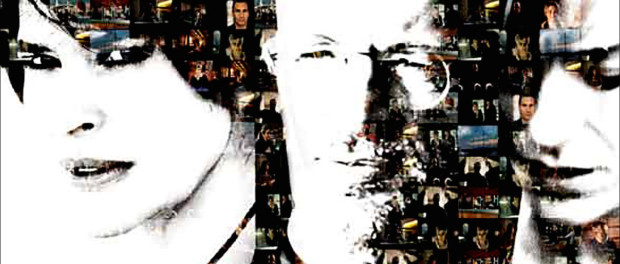European Cinema: Claude Lelouch’s Roman de Gare
With a baguette-full of French artistry and a touch of unremitting wit, Claude Lelouch succeeds once again in engrossing me in one of his typically intricate cinematic works: Crossing Tracks (Roman de Gare in French). Starring the elegant Fanny Ardant, dark-eyed Audrey Dana and the very atypical Dominique Pinon, Roman de Gare (2007) is a story of mixed identities and skillful dishonesty, an intricate web spun around mysteries and lies.
Lelouch movies usually follow a baffling amount of plotlines and characters that all smoothly merge together towards the end of his works. Roman de Gare is naturally no exception to the rule. Although the latter has notably less protagonists than other movies by Lelouch – say Les uns et les autres and Les misérables – every scene from Roman de Gare seems to be going a different direction, until all loose ends are finally tied together. And even though the movie may feel quite disorienting, it is definitely not sporadic: every element present was meticulously thought-through and remains completely pertinent to the plot development.
Roman de Gare starts off with a famous writer, Judith Ralitzer, confessing to some sort of crime. The setting then shifts to follow the spirited Huguette’s struggle as her fiancé abandons her at a gas station. Luckily, a mysterious stranger, Paul Laclos, arrives to Huguette’s rescue – but who is this mysterious stranger? As Paul himself later states in movie, he could be anyone from a psycho killer who loves magic tricks, to a teacher who ran away from his life and his family, to a best-selling author’s ghost writer. Indeed, the latter three characters are extensively mentioned throughout the movie, without ever being concretely identified. Furthermore, is the fiery Huguette really the simple hairdresser she claims to be? And is the movie potentially just depicting scenes from Judith Ralitzer’s best-selling novels? Welcome to a world of lies and deceit, where the viewer is constantly tricked into false assumptions and dead ends.
This movie definitely does not follow the standard of linear and Americanized plotlines. Although Hugette may be a disastrous choice for a character’s name, I love how French this movie feels. For instance, the real “stud” of the movie is no macho American ape; it’s the sensitive intellectual who appeals to all of our attractive French women. And I really dig how strikingly classy cussing sounds with a French accent: words like “putain” and “connard” could not be more elegantly uttered. Better still, Lelouch is brilliant at playing with his audience. Indeed, Roman de Gare is full of moments that seem to foreshadow either a thrilling murder or a provocative sex scene. However, Lelouch stubbornly refuses to give his viewers what they are expecting. He simply teases them, to show that he has an unpredictable power that the audience can never anticipate.
Finally, other little details such as a traditionally French soundtrack and beautiful shots of the roadside and wineries help enhance the overall beauty of the movie. And unlike many very American movies, the actors are not necessarily flawless models drowning in cover-up. They look like real human beings with normal human bodies and naturally imperfect faces. There is no glamour in painted faces and unrealistic portrayals of people and I am really happy that Lelouch understands that.
Essentially, despite my personal bias towards Lelouch – his World War II adaptation of Victor Hugo’s legendary Les Misérables is extraordinary – Roman de Gare can seriously offer anyone a whole lot of wit and fun. Another Lelouch movie that would be criminal to miss would be Les uns et les autres. It completely hypnotized me with its outstanding soundtrack and glorious finale – imagine dozens of unrelated humane protagonists all united by the one magnificent Bolero choreography they witness together at the end. Pure artistry.
Rating: ****
Best quote: “La litérature, ce n’est que litres et ratures.”
https://www.youtube.com/watch?v=zKTwvo8gx68
Roman de Gare is available now from First Run Features.






